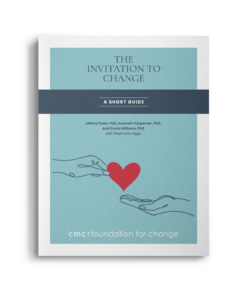Trainer
Lori Siegel, PhD is a licensed psychologist at the Psychiatry and Behavioral Health Institute, part of the Allegheny Health Network in Pittsburgh, PA. Dr. Siegel serves as a clinician, supervisor, and member of the training committee of the predoctoral psychology internship program. She completed her doctoral training at Temple University in Philadelphia and Bellevue Hospital in New York. She then completed a postdoctoral fellowship at the Addiction Institute (formerly Smithers) of New York. Dr. Siegel subsequently joined the staff of the Center for Motivation and Change, eventually becoming a supervising psychologist there.
Dr. Siegel has been using evidence-based therapies for substance use disorder for over 15 years with both individuals and families and feels fortunate to train parents and professionals in The Invitation to Change® model with CMC:FFC.
Q&A
Get to know your trainer
The families of kids who are using substances often feel scared, confused, and desperate for help. Unfortunately, most options that are available recommend that parents detach from their child to let them “hit rock bottom.” Parents often feel conflicted about taking this step because they want to stay emotionally connected to, and actively help their child. The Invitation to Change model gives parents strategies to understand, support, and communicate with their child effectively which includes collaboratively moving their child towards treatment. In addition, this model also emphasizes and teaches self-care so that parents can sustain their well-being during this difficult process. I am proud to be able to bring this information to both parents and professionals so that more and more people can learn and use these effective tools.
In each training, someone inevitably says, “I wish I had known this sooner. It makes so much sense.” It feels great to know that what we are providing is useful, but it’s also frustrating that what has historically been available to families has been inadequate.
The first thing I would tell a parent is that their child’s behaviors make sense so that they may have increased empathy for their child and more motivation to learn effective ways to help.

